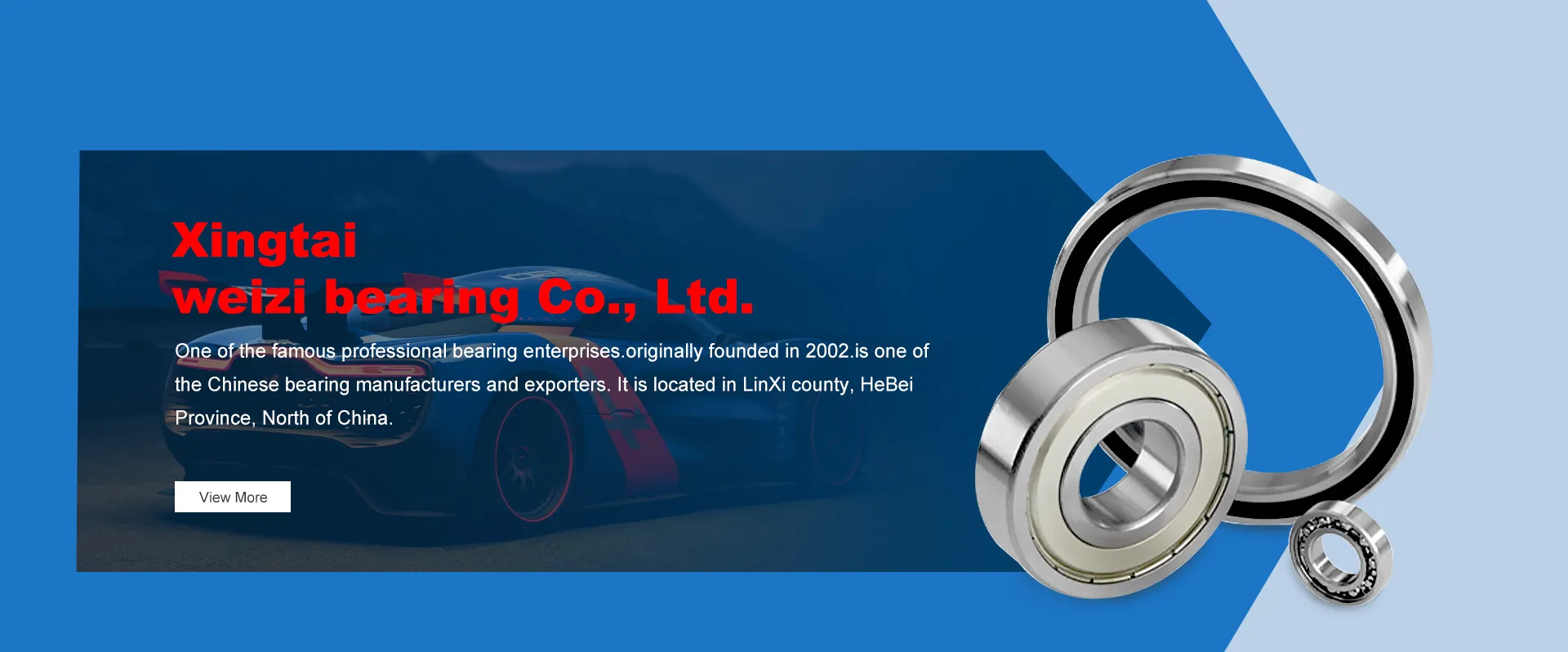
Dec . 31, 2024 10:35 Back to list
taper roller bearing failure analysis
Taper Roller Bearing Failure Analysis
Taper roller bearings are widely used in various applications due to their ability to withstand heavy radial and axial loads. They are particularly common in automotive and industrial machinery where reliability and performance are critical. However, like all mechanical components, taper roller bearings can fail. Analyzing the causes of these failures is essential for improving design, ensuring safety, and enhancing the longevity of machinery. This article explores the common causes of taper roller bearing failure and outlines potential preventive measures.
Common Causes of Failure
1. Insufficient Lubrication One of the most prevalent causes of bearing failure is inadequate lubrication. Lubricants help reduce friction between the rolling elements and raceways, thus preventing wear and overheating. When lubrication is insufficient, bearings can experience increased friction, leading to overheating and eventually failure. Contaminated lubricants can also compromise bearing performance, as dirt and debris may introduce wear particles into the bearing assembly.
2. Misalignment Taper roller bearings are designed to accommodate specific loads and alignments. If a bearing is misaligned during installation or due to external forces, it can lead to uneven load distribution. This can cause localized stress, resulting in premature wear and failure. Ensuring proper alignment during installation and routine maintenance checks is essential to prevent misalignment issues.
3. Overloading Taper roller bearings have a defined load capacity. Excessive loads beyond the specified capacity can lead to bearing deformation, fatigue, and ultimately failure. Overloading can occur due to unexpected operational conditions, such as sudden shocks or vibrations. Operators should ensure that the application does not exceed load specifications and implement measures to manage heavy loads effectively.
4. Wear and Fatigue Over time, wear and tear are inevitable. Taper roller bearings can experience surface fatigue due to cyclic loading, leading to pitting or spalling on the roller surfaces. This degradation deteriorates the bearing's performance and can result in operational failure. Regular inspections and timely replacements are crucial to mitigating wear-related failures.
5. Thermal Issues Elevated temperatures can impact the integrity of taper roller bearings. High temperatures may cause lubricant breakdown and encourage oxidation, which can accelerate wear. Thermal expansion due to heat can also affect the fit between the rolling elements and raceways. It is essential to monitor operating temperatures and implement cooling solutions where necessary to maintain optimal performance.
taper roller bearing failure analysis

Preventive Measures
To enhance the reliability and longevity of taper roller bearings, several preventive measures can be implemented
- Regular Lubrication Checks Establish a routine maintenance schedule for checking lubrication levels and quality. Using the appropriate lubricant type and ensuring that it remains clean can significantly reduce the likelihood of failure due to lubrication issues.
- Proper Installation Follow manufacturer guidelines during installation to ensure correct alignment and fitting. Utilizing precision tools and techniques can minimize the risk of misalignment and related failures.
- Monitor Load Conditions Implement load monitoring systems to ensure that the bearings are not subjected to excessive loads. Regular audits of operational conditions can help identify potential overload scenarios.
- Temperature Management Invest in temperature monitoring systems to detect overheating and address it promptly. Adequate cooling systems or heat shields can be beneficial in high-temperature applications.
- Periodic Inspections Establish a routine inspection program to check for wear, damage, and other potential issues. Early detection of problems can prevent catastrophic failures and costly downtimes.
In conclusion, understanding the causes and mechanisms of taper roller bearing failures is vital for maintaining machinery efficiency and reliability. By implementing effective preventive measures and adhering to best practices in maintenance, operators can significantly reduce the risk of bearing failures, ensuring safe and uninterrupted operations.
Latest news
-
Premium Deep Groove Ball Bearings | High Speed & Reliability
NewsAug.29,2025
-
Durable Scaffolding Clamps - Secure & Reliable Tube Connectors
NewsAug.28,2025
-
Common Failures in Thrust Ball Bearings and Solutions
NewsAug.22,2025
-
How Tapered Roller Bearings Can Take Shock Loads
NewsAug.22,2025
-
Angular Bearings in High-Precision Spindles
NewsAug.22,2025
-
The Impact of Misalignment on Cylindrical Roller Bearing Performance
NewsAug.22,2025
